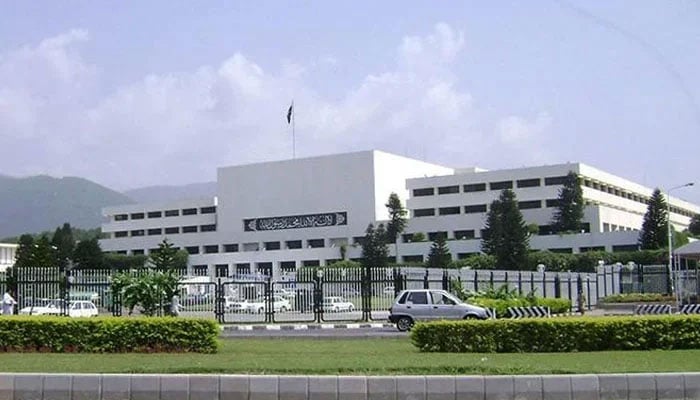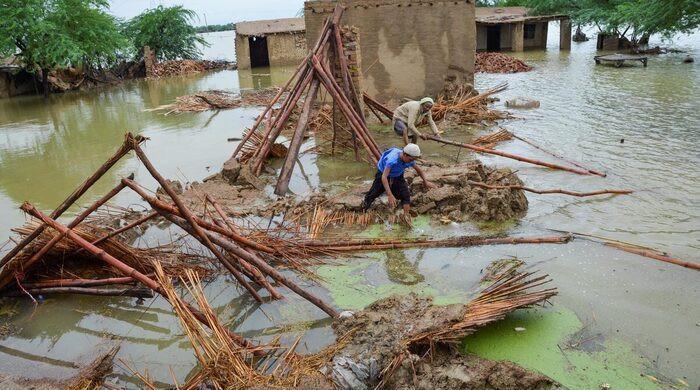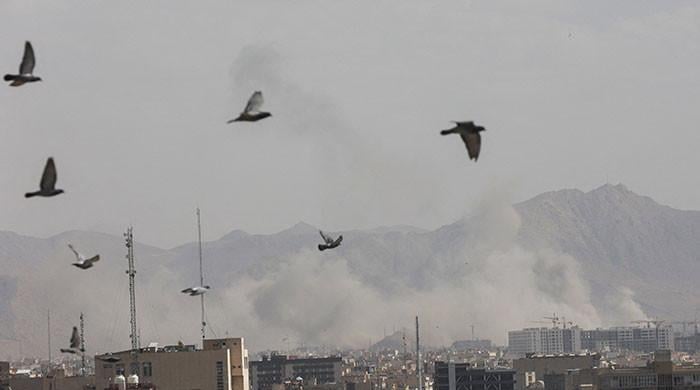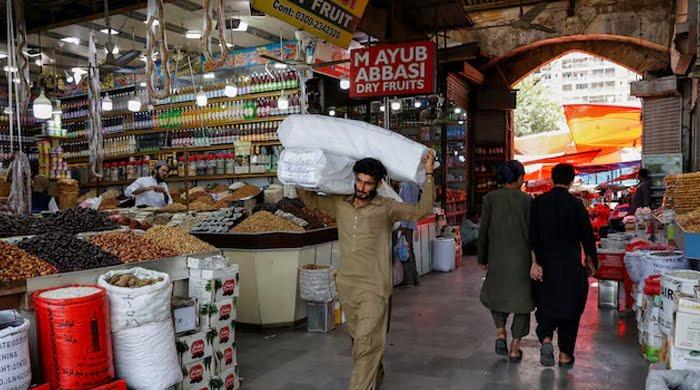Debris of systemic collapse
After the passage of 26th Amendment, concept of an independent judiciary has been buried
July 05, 2025

Unsustainable that our national political environment has been since times far gone, I could never imagine that, not too far into the future, we could be heading towards total systemic collapse.
We have not only travelled a fair distance towards that goal; we are looking at the prospect increasingly scared of what is coming our way, and whether we deserve to be staring into this abysmal pit.
Pakistan has been a ripe ground for experimentation. Whosoever came into power in this country, by using whatever means they could get their hands on, and whether they came in uniforms or civvies, they were able to turn this country into a playing field for tossing around their plans of what it should look like, what it should espouse and what it should reject. In the process, the country gradually lost its foundational ethos as it moved along an unknown path with a trajectory right into a wasteland.
This is a story that has been repeated countless times. Each such experiment ultimately brought us back to where we had started from so that we could reignite the engines to traverse the tricky course again. Over time, not only were we consumed with listless monotony; we lost interest in what was happening around us.
Consequently, most of us gave up on our hopes associated here and started looking for greener pastures elsewhere. While this phenomenon has been spread over all the years since we became an independent country, it has accelerated alarmingly in the last three years with close to four million people having moved to other countries, and more following in quick stead.
When we look around today, the fact sheet of our performance makes for miserable reading. Since the toppling of the Imran Khan government, the country has moved into a phase where the constitution, the rule of law and democracy have been done away with.
After the passage of the 26th Amendment, the concept of an independent judiciary has been buried. With the legislature living up to its reputation of being the executive's handmaiden and the more recent departure of the judiciary, the three pillars on which the state rested have been reduced to just one. It makes for a wobbly structure.
Strangely, a senior government minister has eagerly acknowledged that we are experimenting with a hybrid system where the establishment plays a vital, even dominant role. He has claimed that such concoctions exist in other countries with comparisons enacted with the US and Europe. He has also projected that such a system is most suited to our environment, and we should adopt it as a permanent form of government – a contention further supplemented by the rumours circulating about the introduction of a 27th Amendment.
Strange that such assertions are, I am at a loss to understand the rationale behind it and why we should accept that such an unsavoury mix would suit this country's needs and those of its people. The world may be going through turbulent times and engaged in sorting out its own mess, but that does not mean that we should seek a state of artificial normalisation by doing away with the constitution, the rule of law and human freedoms and, in their place, start lauding the merits of a hybrid system where a few from the corrupt beneficiary elite would dictatethe fate of the country and its people.
For the advocates of this fabrication, it is important to take a dip in history to realise the challenges that automatically crop up when dealing with such unnatural and often dangerous liaisons. An effective system is based on the eternal principle of checks and balances which does not work by entrusting a select coterie of people with unlimited powers to be in the driving seat with their foot on the accelerator and their mind engrossed in planning about piling on their personal assets. This would be a recipe for disaster as it has been in the past with the country subjected to prolonged phases of sufferance and misery.
How did we come to this pass where every road that we take brings us back to the beginning? The answer may disturb some, particularly from the governing classes, but it is impossible to repudiate it with logic. This happened because we never really made a genuine effort to cast off the yoke of slavery that we have been used to living with. Instead, we created our indigenous beneficiary class to replace the British upon their exit.
This class was never devoted to serving the people. They only served themselves and the cronies who were their partners in this self-elevating occupation of subjugating their own people lest they become a challenge for their inherited claim to suzerainty and their infatuation to be always saddled in the seats of power.
In the process, not only we have allowed a miniscule minority to dictate the fate of the majority; we have even accepted the concept of a hereditary system where the baton of power passes from the parents to their children. By just imagining the ruling class rejoicing in the enslavement of people, we can realise the enormity of the tragedy that we continue to live with.
We are confronted with an existential challenge which does not concern just you and me. It concerns a whole nation and its future generations. The simple question one must try to answer is whether we would be amenable to accepting the chains of slavery for ourselves and bequeathing these for our children as well? Or should we rather put up a spirited fight to free ourselves from this bondage so that we could become the arbiters of our own fate?
This fight is not going to be with weapons. It rages in the mind and how it works to move on, step by step, to start breathing as a nation proud of our credentials, determined to chisel our fate with courage with our character unsoiled and our dignity safeguarded.
Instead of rummaging through the debris of a colossal systemic collapse, people should instead free themselves of the shackles of servitude in the hands of the neo-colonial masters. A difficult struggle to contend with, but the toiling masses who have tragically survived on the fringes of life deserve to breathe the most. They need to be centre stage, leading this battle for claiming our freedom and our sovereignty as an honourable nation, with equality and equity as our guiding principles, and without subservience to exploitative foreign or domestic interests.
Let’s walk out of the shadows of eternal captivity. Let’s start breathing as free people.
The writer is a political and security strategist and the founder of the Regional Peace Institute. He is a former special assistant to former PM Imran Khan and heads the PTI’s policy think-tank. He tweets @RaoofHasan
Disclaimer: The viewpoints expressed in this piece are the writer's own and don't necessarily reflect Geo.tv's editorial policy.
Originally published in The News











